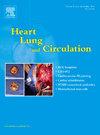iCARDIO Alliance Global Implementation Guidelines on Heart Failure 2025
IF 2.2
4区 医学
Q2 CARDIAC & CARDIOVASCULAR SYSTEMS
引用次数: 0
Abstract
Inconsistencies in healthcare access, varying infrastructure, resource constraints and diverse local practices as well as practical and political issues restrict the global applicability of currently available guidelines. There is a need for universal recommendations that address the unique challenges faced by patients and healthcare providers worldwide. Our iCARDIO Alliance Global Implementation Guidelines emphasize the incorporation of novel therapies, while integrating standard of care with the most up-to-date evidence to enable clinicians to optimize patient care. This document is about heart failure (HF), including acute and chronic heart failure, heart failure with reduced ejection fraction and heart failure with preserved ejection fraction as well as cardiomyopathies. Context-specific recommendations tailored to individual patient needs are highlighted providing a thorough evaluation of the risks, benefits, and overall value of each therapy, aiming to establish a standard of care that improves patient outcomes and reduces the burden of hospitalization in this susceptible population. These guidelines provide evidence-based recommendations that represent a group consensus considering the many other published guidelines that have reviewed many of the issues discussed here, but they also make new recommendations where new evidence has recently emerged. Most importantly these guidelines also provide recommendations on a number of issues where resource limitations may put constraints on the care provided to HF patients. Such “economic adjustment” recommendations aim to provide guidance for situations when “Resources are somewhat limited” or when “Resources are severely limited”. Hence, this document presents not only a comprehensive but also concise update to HF management guidelines thereby aiming to provide a unified strategy for the pharmacological, non-pharmacological, invasive and interventional management of this significant global health challenge that is applicable to the needs of healthcare around the globe.
iCARDIO联盟心力衰竭全球实施指南2025。
在获得医疗保健方面不一致、基础设施各异、资源限制和不同的地方做法以及实际和政治问题限制了现有准则的全球适用性。有必要提出普遍的建议,以解决全世界患者和医疗保健提供者面临的独特挑战。我们的iCARDIO联盟全球实施指南强调新疗法的结合,同时将标准护理与最新证据相结合,使临床医生能够优化患者护理。本文是关于心力衰竭(HF),包括急性和慢性心力衰竭、心力衰竭伴射血分数降低、心力衰竭伴射血分数保留以及心肌病。强调针对患者个体需求量身定制的具体情况建议,对每种疗法的风险、益处和总体价值进行全面评估,旨在建立一种标准的护理,以改善患者的预后并减轻这一易感人群的住院负担。这些指南提供了基于证据的建议,代表了考虑到许多其他已发表的指南审查了这里讨论的许多问题的群体共识,但它们也在最近出现新证据的情况下提出了新的建议。最重要的是,这些指南还就资源限制可能制约向心衰患者提供护理的一些问题提供了建议。这种“经济调整”建议旨在为“资源有些有限”或“资源严重有限”的情况提供指导。因此,本文不仅对心衰管理指南进行了全面且简明的更新,旨在为这一重大全球健康挑战的药理学、非药理学、侵入性和介入性管理提供统一的策略,适用于全球医疗保健需求。
本文章由计算机程序翻译,如有差异,请以英文原文为准。
求助全文
约1分钟内获得全文
求助全文
来源期刊

Heart, Lung and Circulation
CARDIAC & CARDIOVASCULAR SYSTEMS-
CiteScore
4.50
自引率
3.80%
发文量
912
审稿时长
11.9 weeks
期刊介绍:
Heart, Lung and Circulation publishes articles integrating clinical and research activities in the fields of basic cardiovascular science, clinical cardiology and cardiac surgery, with a focus on emerging issues in cardiovascular disease. The journal promotes multidisciplinary dialogue between cardiologists, cardiothoracic surgeons, cardio-pulmonary physicians and cardiovascular scientists.
 求助内容:
求助内容: 应助结果提醒方式:
应助结果提醒方式:


